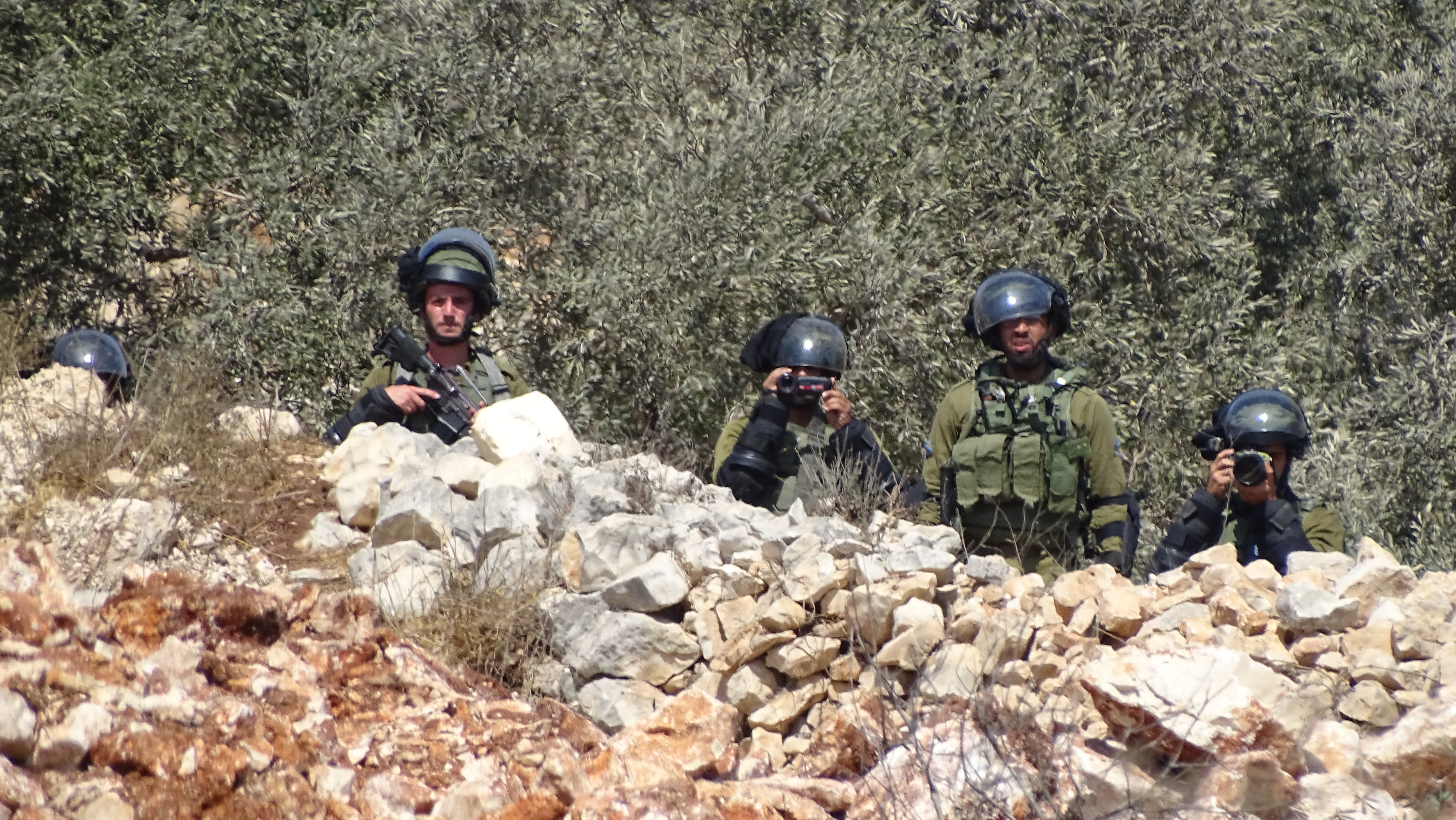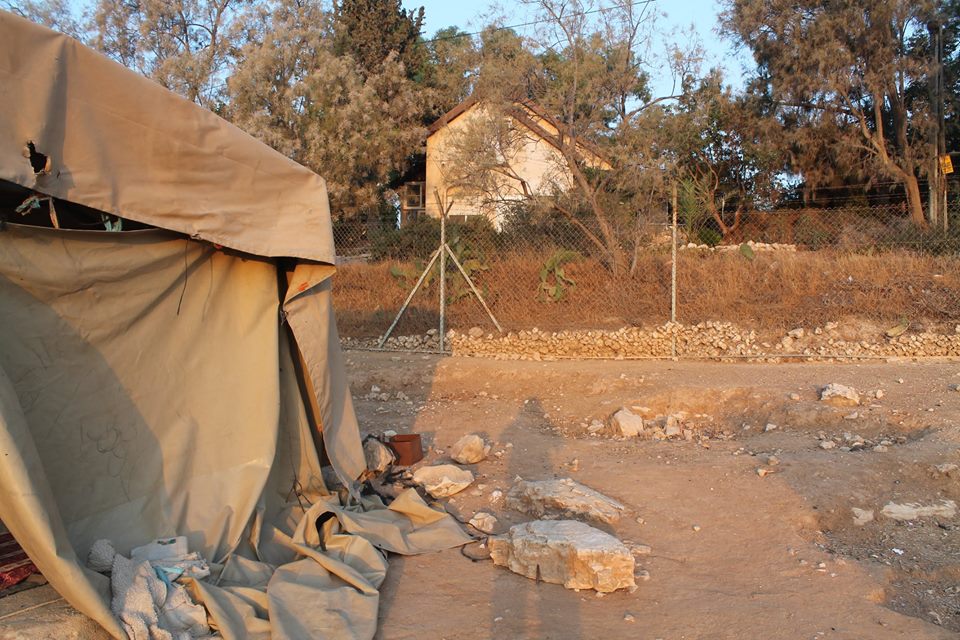Tag: Settler violence
-
When buildings break bones
1st October 2017 | International Solidarity Movement, Nablus team | Urif, Einabus & Huwara, occupied Palestine It was a somber trip through the villages of Urif, Einabus, and Huwara yesterday. Their peripheries continue to be threatened by the illegal settlement of Yitzar, which sits strategically on a hill above them, allowing for fast and terrifying…
-
Israeli military shot 20-year old in the chest with rubber coated steel bullet
8th September 2017 | International Solidarity Movement, Huwwara-team | Kafr Qaddum, occupied Palestine During the demonstration in Kfar Qaddum today, Friday the 8th of September, a 20-year old Palestinian protester was shot with a rubber coated steel bullet in his chest, and treated at the scene, while camera drones were buzzing above the heads of…
-
Two nights in Umm al-Kheir: a journal
5th September 2017 | International Solidarity Movement, al-Khalil team | Umm al-Kheir, south Hebron, occupied Palestine Spent the last two days at Umm Al Khair, a Bedouin village in the South Hebron Hills enjoying the wonderful hospitality, generosity, and loving kindness. This was not my first trip there. And as much as I hate to…



